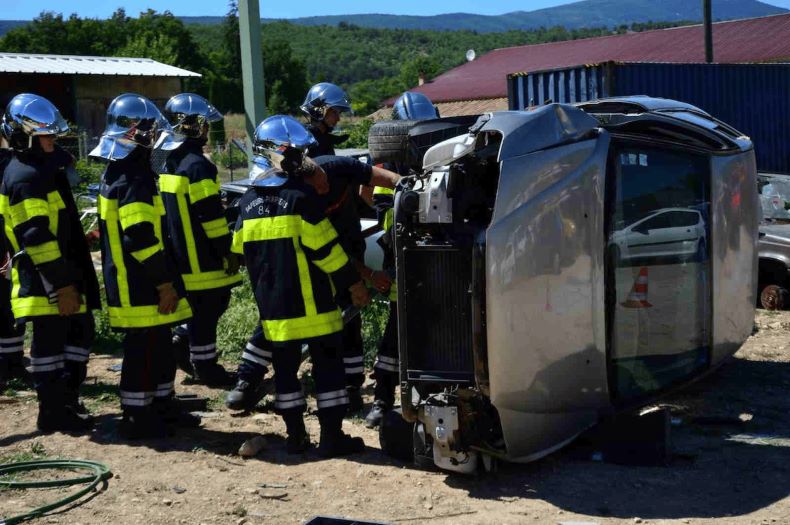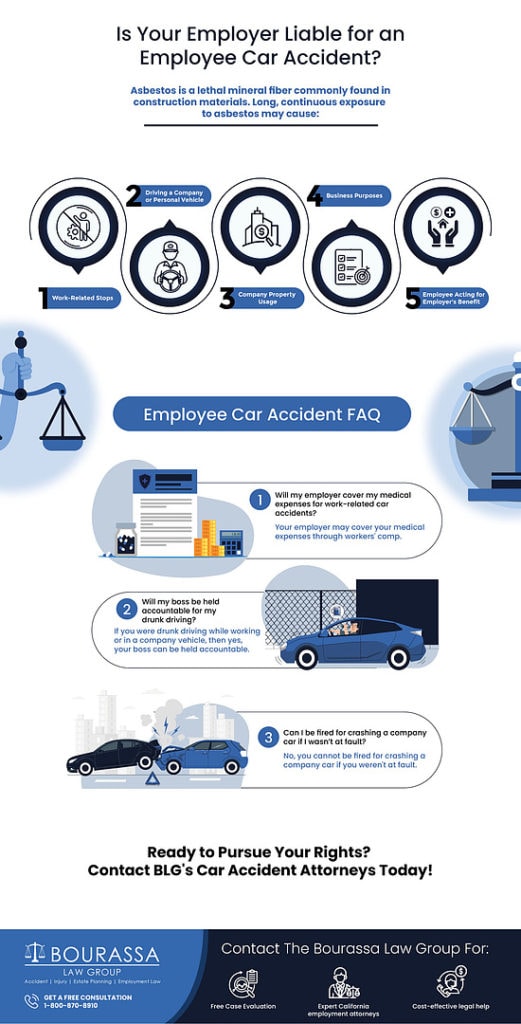
Car accidents are unfortunate events that can happen to anyone at any time. In many cases, these accidents involve individuals driving their personal vehicles for various reasons. However, when an employee is involved in a car accident while acting within the scope of their employment in Nevada, questions about employer liability arise. In this article, we will delve into the intricacies of employer liability for employee car accidents in the Silver State, providing you with a comprehensive understanding of when and how much an employer may be held responsible.
Employer Liability for Employee Car Accidents in Nevada: A Closer Look
Nevada law stipulates that an employer may be liable for an employee’s car accident if the accident occurred while the employee was acting within the scope of their employment. This legal concept is known as “vicarious liability.” In simpler terms, the employer liable for the consequences of the accident would only be in case the employee was conducting work-related activities or carrying out tasks on behalf of the employer.
To understand when an employer may be liable for an employee’s car accident in Nevada, it’s essential to consider the following factors:
Work-Related Stops:
If the employee was involved in the accident while on a work-related trip, such as making deliveries, visiting a job site, or running work-related errands, the accident is likely within the scope of their employment.
Driving a Company or Personal Vehicle:
Whether the employee was driving a company-owned vehicle or their personal car, if the accident occurred while they were performing job-related tasks, the employer’s liability may come into question.
Company Property Usage:
If the employee was using company property or resources, like a company car, at the time of the accident, this usage could make the employer responsible for the accident’s consequences.
Business Purposes:
If the employee was conducting business on behalf of the company, even during non-traditional work hours or while on a business trip, the accident could be considered within the scope of their employment.
Employee Acting for Employer’s Benefit:
When an employee’s actions, even if outside normal work hours, benefit the employer in some way, the accident may be seen as within the scope of their employment.
Independent Contractors and Employee Classification
It’s important to note that the classification of the individual as an employee or an independent contractor plays a significant role in determining employer liability. Independent contractors are generally considered separate from the employer’s liability for accidents, as they are responsible for their own actions and accidents. However, misclassifying employees as independent contractors can lead to legal complications.
What If the Employee Alone Is Responsible for Employee Car Accidents?
If the employee is solely responsible for a car accident that occurs while they are using a company-owned vehicle or conducting job-related activities, the liability for the accident typically falls on the employee individually. In such cases, the employer is usually not held responsible for the accident. The key points to consider in situations where the employee alone is responsible for the accident include:
Employee’s Negligence:
If the accident was caused by the employee’s negligence, recklessness, or violation of traffic laws, they are generally considered the at-fault party. Their personal auto insurance, if applicable, would typically cover the damages and liability arising from the accident.
Personal Auto Insurance:
If the employee was using their own vehicle for work-related activities and was at fault in the accident, their personal auto insurance would be the primary source of coverage for the damages and liability associated with the accident. The employer’s insurance would not come into play in this scenario.
Employee’s Own Resources:
The employee may be personally responsible for any costs associated with the accident, such as medical bills, property damage, and other related expenses.
Potential Consequences and Compensation
If an employee is involved in a car accident within the scope of their employment in Nevada, there are various consequences and compensation avenues to consider:
Workers’ Compensation:
In many cases, employees who are injured in work-related car accidents may be eligible for workers’ compensation benefits to cover medical expenses and lost wages.
Personal Injury Claims:
Employees who were injured due to another driver’s negligence may also file personal injury claims against the at-fault driver, in addition to any workers’ compensation benefits.
Property Damage:
In cases where the accident caused property damage, such as damage to the employee’s personal vehicle, they may be entitled to compensation for these damages.
Insurance Coverage:
The company’s insurance policies, including liability insurance, may come into play to cover costs associated with the accident.
Employee Car Accident FAQ
Will my employer cover my medical expenses in the event of a work-related car accident?
In a work-related car accident, your medical bills are typically covered through workers’ compensation. Workers’ compensation is an insurance program that most employers are required to provide to their employees. It covers medical expenses, including hospital bills, doctor’s fees, prescription medications, and necessary treatments, if you are injured while performing job-related tasks. Your employer’s workers’ compensation insurance should pay for these medical costs, and you can file a claim with your employer or their insurance carrier to initiate the process. It’s important to report the accident to your employer promptly and seek medical attention as needed to ensure that your medical bills are properly covered through workers’ compensation.
What is an employer’s responsibility for employee drunk driving accidents?
An employer’s responsibility for employee drunk driving accidents typically hinges on whether the employee was acting within the scope of their employment at the time of the accident. If the employee was driving under the influence while conducting job-related tasks or using a company-owned vehicle, the employer may be held liable for the accident under the doctrine of vicarious liability. However, if the employee was off-duty and engaged in personal activities at the time of the accident, the employer is generally not responsible for the employee’s reckless behavior. Employers are encouraged to have clear policies regarding substance abuse and safe driving and to take appropriate measures to prevent employees from driving under the influence during work-related activities.
Can you be fired for crashing a Company car if you weren’t at fault?
If you, as an employee, were not at fault for a company car accident while using a company vehicle or conducting job-related activities, your employer generally should not terminate you for the accident. In such cases, it’s essential to report the accident to your employer promptly and provide all relevant details, including any evidence showing that you were not responsible for the accident. Employers often have liability insurance in place to cover accidents involving company vehicles. If the accident was caused by the negligence or fault of another driver, the employer’s insurance would typically handle the damages and liability. However, it’s crucial to consult with your employer’s HR department or car accident lawyer to ensure that your rights are protected and that you are not unjustly terminated.
Consulting an Experienced Lawyer
When navigating the complex landscape of employer liability for employee car accidents in Nevada, seeking the guidance of an experienced car accident attorney is highly recommended. An attorney can help you understand your rights, gather and preserve evidence, negotiate with insurance adjusters, and represent your best interests in legal proceedings.

Consult BLG’s Seasoned Car Accident Attorneys Today!
Understanding employer liability for employee car accidents in Nevada is crucial for both employers and employees. It ensures that individuals injured in work-related accidents receive the compensation they deserve, and it helps employers make informed decisions to protect their businesses. If you find yourself in a situation involving an employee car accident, always consult with a qualified attorney to explore your legal options and rights. By doing so, you can ensure that justice is served and that you receive the support you need during challenging times. If you need assistance with an employer liability case or have any questions, feel free to reach out to our law firm for a free consultation. We’re here to provide you with the superior answers and guidance you need during this difficult period.
Ready to take action? Consult BLG‘s expert car accident attorneys today and protect your rights. Reach out for a free consultation and let us guide you through the legal process. Your well-being is our priority. Don’t wait, contact us now!





